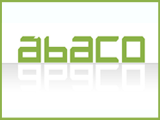IMDEA Networks

ÁBACO, a project to improve distribution of multi-device digital content
24 March 2014

IMDEA Networks Institute announces the launch of the research project ÁBACO, an Open Source Distributed Platform for the Management and Distribution of Multi-device Digital Content.
The objective pursued by this project is to develop an open source distributed system to address the various current challenges and needs in the field of generation, distribution and management of digital content. The platform also aims to create a more competitive environment for the development of this strategic industry. It will be equipped with the maximum technological flexibility and different software elements in it will perform tasks to manage, distribute and transcode multimedia digital content.
ÁBACO shall deliver a set of services that allow customers to access and manage digital content with the capacity to adapt to the needs and requirements of the user, on the basis of the capabilities and characteristics of the devices from which the request originates.
The project objectives therefore are (i) development of multi-platform technologies for direct conversion of content from a digital format to another; (ii) creation of a technological architecture that allows content access on all end devices and regardless of bandwidth; (ii) ability to transcode audio, video and image formats; (iii) development of an intelligent digital content management and distribution system; (iv) design of a prototype platform for high availability and scalability based on open source.
As part of the set of milestones associated with the project, an IMDEA Networks team lead by Antonio Fernández Anta has been subcontracted to collaborate in the development of the following tasks: (i) Definition of the architecture; (ii) design and development of algorithms; (iii) definition of the basic and advanced features. ÁBACO will run from November 2013 to September 2014.


Recent Comments